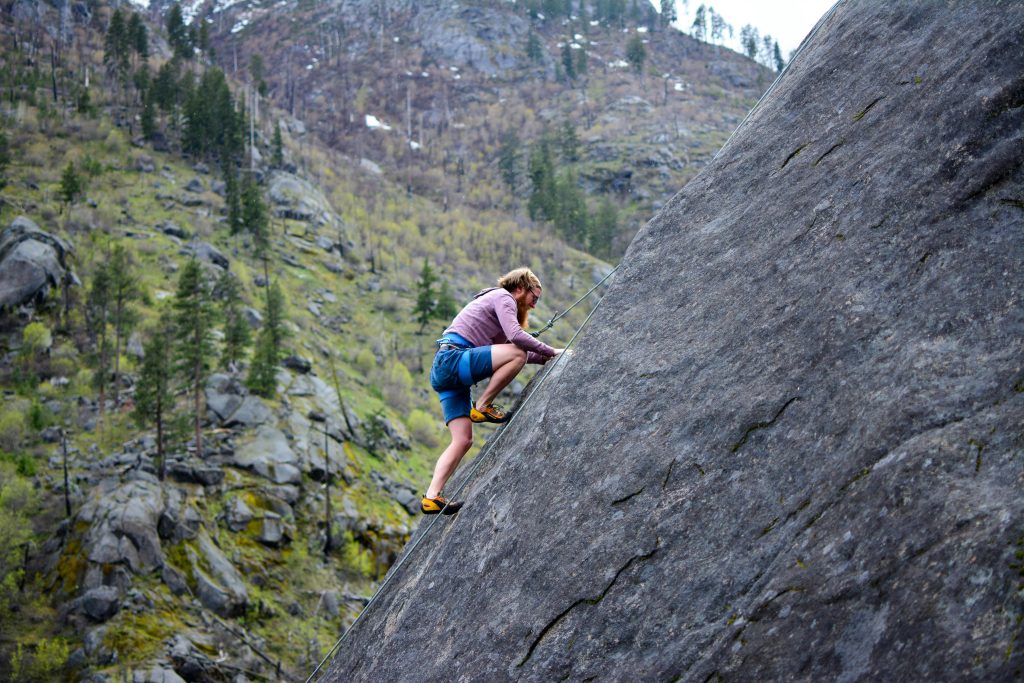Trivor Mountain, standing at an impressive 7,577 meters (24,836 feet), is one of the lesser-known peaks in the Karakoram Range of Pakistan. Despite its relative obscurity compared to its towering neighbors like K2 and Broad Peak, Trivor offers a unique blend of beauty, challenge, and mystery. Located in the Hispar Muztagh subrange, this majestic peak attracts adventurers and climbers seeking a serene yet thrilling experience in one of the most pristine mountain environments on Earth.
This article delves deep into the allure of Trivor Mountain, its significance, and why it deserves recognition as a top destination for climbers and trekkers alike.
Location and Geographic Importance
Trivor Mountain is situated in the Gilgit-Baltistan region of northern Pakistan. It forms part of the Hispar Muztagh range, a subrange of the Karakoram. The mountain is accessible through the Hispar Glacier, one of the longest glaciers outside the polar regions.
The region surrounding Trivor is characterized by dramatic landscapes, including towering peaks, sprawling glaciers, and lush valleys. This combination makes it a haven for adventurers who seek both solitude and breathtaking views. Trivor’s remote location adds to its charm, offering an escape from the bustling tourist hotspots of the region.
The Allure of Trivor Mountain
What makes Trivor Mountain special is its relatively untouched nature. Unlike the more famous peaks, Trivor has seen limited climbing activity, which adds an air of exclusivity and mystery to it. Climbers who attempt Trivor often describe it as a rewarding challenge, with stunning vistas and a sense of accomplishment that few other peaks can match.
For trekkers, the journey to the mountain’s base camp offers an unforgettable experience. The route passes through picturesque villages, roaring rivers, and verdant meadows, showcasing the natural beauty of Gilgit-Baltistan.
History of Exploration
Trivor Mountain has a modest but intriguing history of exploration. The first recorded ascent of the peak was in 1960 by a British-American expedition. The climbers chose the southeast ridge for their successful attempt. Since then, only a handful of expeditions have tackled Trivor, making it one of the less-traveled peaks in the Karakoram.
This lack of extensive climbing history makes Trivor an attractive destination for climbers looking to make their mark. The mountain offers opportunities for new routes and unexplored challenges, appealing to those who crave adventure and discovery.
Climbing Trivor Mountain

Trivor is not as technically demanding as some of its Karakoram counterparts, but it still requires skill, experience, and determination. The ascent involves traversing steep snowfields, icy ridges, and rocky terrain. Climbers must be proficient in both rock and ice climbing techniques to tackle the mountain successfully.
Key challenges include:
- Altitude: At over 7,500 meters, Trivor poses a significant risk of altitude sickness, requiring careful acclimatization.
- Weather: The Karakoram is notorious for its unpredictable weather, with sudden snowstorms and high winds posing threats to climbers.
- Remote Access: Reaching the base camp involves a demanding trek through the Hispar Glacier, requiring physical endurance and logistical planning.
Despite these challenges, climbers who summit Trivor describe the experience as immensely rewarding, with panoramic views of the Karakoram Range and an unparalleled sense of achievement.
Trekking Around Trivor Mountain
For those not inclined to climb, trekking in the vicinity of Trivor Mountain offers a captivating alternative. The trek to the base camp is an adventure in itself, showcasing the rugged beauty of the Hispar Glacier and the surrounding peaks.
Highlights of the trek include:
- Hispar Glacier: This vast glacier stretches for 49 kilometers, offering awe-inspiring views of ice formations and surrounding mountains.
- Wildlife Encounters: The region is home to unique wildlife, including ibex, snow leopards, and Himalayan foxes.
- Cultural Experiences: Trekkers pass through traditional villages where they can interact with the hospitable local communities and learn about their way of life.
Trekking around Trivor is a blend of adventure and cultural exploration, making it a well-rounded experience for nature enthusiasts.
Why Visit Trivor Mountain in 2025?
The year 2025 is an excellent time to explore Trivor Mountain. Improved infrastructure and increased awareness of Pakistan’s mountaineering potential have made the region more accessible. Adventure tourism is on the rise, and Trivor offers an off-the-beaten-path experience for those seeking something unique.
Moreover, advancements in climbing gear and weather forecasting have made climbing peaks like Trivor safer and more achievable. Whether you’re a climber or a trekker, the mountain promises an unforgettable journey into the heart of the Karakoram.
Case Study: A Successful Trek to Trivor Base Camp
Background
In the summer of 2024, a group of adventure enthusiasts from Europe embarked on a trek to Trivor’s base camp. Their goal was to experience the untouched beauty of the region while raising awareness about sustainable tourism.
Challenges Faced
- Weather Fluctuations: The group had to adapt their itinerary due to unexpected rain and snowfall during the trek.
- Logistical Hurdles: Carrying supplies and navigating the glacier required careful planning and teamwork.
Outcome
Despite the challenges, the group successfully completed their trek, describing it as a life-changing experience. Their journey highlighted the importance of preserving the region’s natural beauty while promoting responsible tourism.
Table of Contents
Tips for Visiting Trivor Mountain
- Plan Ahead: Research the route, obtain necessary permits, and prepare for the remote conditions.
- Hire a Guide: Local guides with expertise in the area can enhance safety and enrich your experience.
- Pack Smart: Ensure you have appropriate gear, warm clothing, and enough food supplies for the journey.
- Respect the Environment: Follow eco-friendly practices to minimize your impact on the fragile ecosystem.
- Stay Safe: Acclimatize properly and stay informed about weather conditions.
Conclusion:Trivor Mountain
Trivor Mountain is a hidden treasure of the Karakoram, offering a perfect blend of challenge, beauty, and tranquility. Whether you’re a seasoned climber seeking a rewarding ascent or a trekker looking for an immersive adventure, Trivor promises an unforgettable experience.
In 2024, this majestic peak invites adventurers to uncover its secrets, explore its pristine surroundings, and create memories that will last a lifetime. If you’re ready to embrace the spirit of adventure, Trivor Mountain awaits you.


